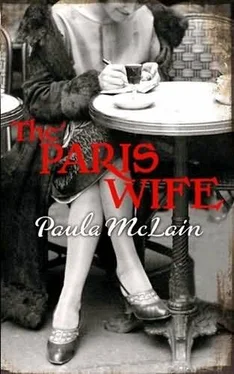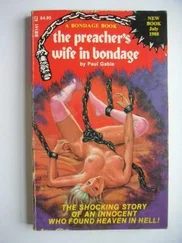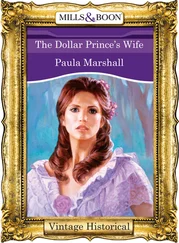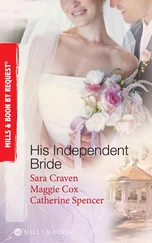I have so many schemes about writing-so much I want to see and feel and do. Say, do you remember playing the piano with your hair glinting full on and how you got up and came over to me on the davenport and said, “Do you gather me, Begonia? ”
Do you gather me, Hash?
Will you come up here already and give me some of that dead-sure stuff that’s you?
His letters came crushed and strangled, full of deliciousness, sometimes two and three a day. I tried to be more reserved at first, vowing to write only once a week, but that fell apart immediately. Before long I found myself in a real bind. The letters were flying back and forth, but what did they mean? Kate’s voice often filled my head- He likes women , all women, apparently -and I debated over whether or not I should tell her about our quickly progressing friendship. I couldn’t imagine her not feeling hurt and angry; I was blatantly, willfully disregarding her advice after all. But if I confessed everything, she might give me more advice, and then I’d have to listen and perhaps act on it.
I was torn between wanting to know if I could trust Ernest and wishing I could stay blind enough to keep things exactly as they were. His words already meant so much-too much. Each of his letters was a perfect tonic and writing him, too, was a tonic, and before long I learned I could hear the mail boy on his bicycle from several blocks away even if he didn’t ring his bell. I told myself that Kate didn’t know everything about Ernest. Who knew everything about anyone? There were qualities coming through in his letters-tenderness, for instance, and palpable warmth-that she might never have seen in all those summers in Michigan. It was possible. It had to be, because the happiness that grew out of Ernest’s interest in me was seeping over into the rest of my life. I was suddenly busier and more content at home than I’d ever been. Two friends, Bertha Doan and Ruth Bradfield, had moved into the upstairs apartment with me as boarders, and for the first time in almost a decade, I wasn’t lonely in my own house. I also had young men interested in me, and even if they weren’t anything extraordinary, they were a nice diversion. I let them take me dancing or to the theater and even let a few of them kiss me good night. Not one of them had Ernest’s great big square head or padding feet and hands; not one asked his wonderful questions or made me want to say, Do you gather me, Begonia?
I kept up with it, though, going out with nearly anyone who asked because Ernest, dear soul that he was, was theoretical-a lovely hypothesis-and hundreds of miles away. In St. Louis, where I was fated to live my actual life, there was Dick Pierce, the brother of a good friend. I liked his company and knew that if I encouraged him at all, he’d fall in love with me and perhaps even propose, but I felt little or nothing for him. There was also Pere Rowland, a pleasantly rumpled boy who knew a lot about books and music, but romantic dates didn’t appeal to me as much as when a group of us would jam into someone’s car and go to a movie in town or the dance hall where everyone was happy and free. Afterward, Ruth and Bertha and I would sit up in our nightgowns with tea and talk through the events of the night.
I had just turned twenty-nine, but in a way I felt younger and more carefree than I did my first year at Bryn Mawr, when I couldn’t enjoy the smallest happiness or intimacy. It was as if I was experiencing a long-delayed coming out, and I was grateful for every minute of it.
And then there were the letters from Chicago arriving every day, always beautifully crumpled and full of busy news. Ernest told me all about his articles for the Commonwealth , his ideas for sketches and novels. But more and more he was also sharing stories about his growing up-about the long summers up in Michigan when his father, Ed, who was a practicing obstetrician and natural outdoorsman, had taught him how to build a fire and cook in the open, how to use an ax, land and dress a fish, hunt squirrel and partridge and pheasant.
Whenever I think of my father , he wrote, he’s in the woods flushing jacksnipe or walking through short dead grass or shocks of corn, or splitting wood with frost in his beard . I read these sentences with tears in my eyes because I had so few warm memories of my own father. When I did think about him, the first image that came to me was his revolver, and then the noise it made ringing through the house. Remembering his death and the way I used to painfully fixate on it disturbed me so much I had to walk twice around the block in a stinging wind before I was calm enough to return to Ernest’s letter.
But if I was jealous of his relationship with his father, his mother was troubling in other ways. Nearly every time he mentioned her in a letter, she was that bitch . He described her as utterly dominant in the household, quick to criticize and full of unbendable ideas about how life should proceed, down to every detail. Before he could read, she’d taught Ernest to memorize Latin and German phrases and lines of “essential” poetry. Although he tried to respect her creative spirit-she sang opera and painted a little and wrote poetry-Ernest ultimately believed she was a selfish mother and wife, intent on her own needs at the risk of destroying everyone around her, particularly her husband. She forced Dr. Hemingway into giving in to every one of her demands, and seeing this made Ernest despise her.
Though Ernest’s passionate rejection of his mother gave me chills, I couldn’t help but recognize it. Learning just how alike our parents’ relationships were was eerie, and yet what struck me hardest was how even though I’d often detested my mother’s indomitable will and even blamed her for my father’s suicide, I’d never expressed this hatred to a soul. It had seethed and roiled inside me. On the occasions it forced its way to the surface, I took up my feather pillow and screamed my feelings into it, choking them off at the root. Ernest spat out his rage freely. Whose response was the most terrifying?
Ultimately, I felt a growing respect for the way he could express even the worst bits of himself and was drawn in by his confidences. I looked forward to Ernest’s letters as I did little else. But his candor, I soon learned, applied to everything equally. In early December, not long after my birthday, he wrote that he’d been attracted the night before by a girl in a flashing green dress at a party. It made me sick to read this. I had no flashing green dress, and even if I did, he wouldn’t see it. He was hundreds of miles away, absorbed by the details of his days and nights there. We were friends and confidants, yes-but he didn’t owe me anything, had made me not a single promise, not even a false one. He could follow that green dress like a siren into the lake if he wanted. I had no hold on him.
No one seemed to have any hold on anyone, in fact. That was a sign of the times. We were all on the verge now, bursting with youth and promise and little trills of jazz. The year before, Olive Thomas had starred in The Flapper , and the word suddenly meant jazz and moved like it, too. Girls everywhere stepped out of their corsets and shortened their dresses and darkened their lips and eyes. We said “cat’s pajamas” and “I’ll say” and “that’s so jake.” Youth, in 1921, was everything, but that was just the thing that could worry me sick. I was twenty-nine, feeling almost obsolete, but Ernest was twenty-one and white hot with life. What was I thinking?
“Maybe I’m not up to this game,” I told my roommate Ruth after I’d gotten Ernest’s siren letter. Bertha was out, and Ruth and I were making dinner together, moving easily around each other in the small kitchen, snapping beans and boiling water for spaghetti, as if we were two maiden aunts who’d done this for decades.
Читать дальше












